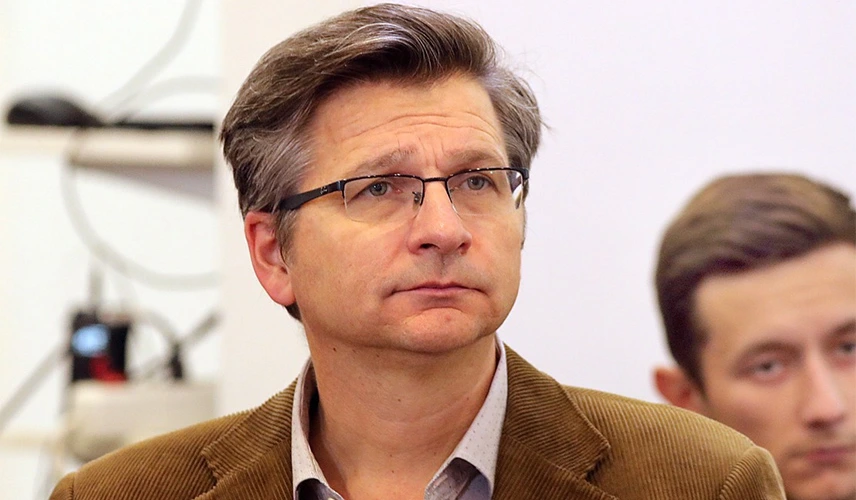THOMPSON'S CONCERT CONFIRMES OPEN PRO-USTASHA SENTIMENT OF CROATIA’S MAJORITY
Serbia - Ković
07/07/2025
13:55

BELGRADE, JULY 7 /SRNA/ – Croatia openly celebrates a movement and an ideology that were brutally destroying Serb children, women, the elderly, and men, said historian Miloš Ković, commenting on Marko Perković Thompson's concert in Zagreb.
"This is an ideology that stands behind one of the most horrific genocides in European history, and certainly the most horrific genocide the Serb people endured, which is being celebrated in Croatia today on such a massive scale. However, the consequences may be positive in the sense of finally dispelling the last Yugoslav illusions among Serbs," Ković noted.
He stressed that this concert, with its massive scale, presented a terrifying revival of Ustasha ideas and iconography, clearly showing the pro-Ustasha sentiment of Croatia's majority.
"It is enough to read the lyrics of the songs and see the massive support, which is both popular and official, as it comes from the top state authorities, to understand that we are witnessing a large-scale revival of Ustasha narratives and pro-Ustasha politics in Croatia," Ković told SRNA.
He believes that the reason for the complete lack of reaction from the EU and its member states to the Ustasha symbols, the chanting of the Ustashaa salute "For the Homeland – Ready!" and the presence of state officials at the concert is very simple.
"Silence is a sign of approval. Let's remember that the revival of Ustasha ideas and practices did not begin with Thompson's concert in Zagreb but started with the wars that led to the breakup of Yugoslavia. We have not seen any reaction from the EU or the US," Ković pointed out.
According to him, just as the revival of Nazi-fascist ideology in Ukraine enjoys full support from the EU and the U.S., the same applies to Croatia, where the Ustasha narrative is being nurtured.
"In a time when the EU is preparing for a new offensive toward the East, toward Russia, what happened in Zagreb can only have the support of Brussels. If you read sources from the Ustasha era, you will see that the Ustasha actually referred to Europe and European values in their campaign toward the East, in which the Ustasha participated. It was a fight for European civilization and a united Europe, of course, under Hitler’s rule," Ković said.
He concluded that the same applies today, and despite many changes, it is obvious that some ideas and policies persist.
"It seems that in Croatia, they feel the time has come for a new offensive toward the East. They are preparing for something like that," Ković concluded.

DODIK: NORMALIZATION IN BiH POSSIBLE IF SCHMIDT'S DECISIONS ARE REVOKED

GOGANOVIĆ VISITS ORTHODOX CHURCH IN TUZLA: RELIGIOUS SITES MUST BE PROTECTED

KOŠARAC: SCHMIDT'S ATTEMPTS AT FINANCIAL DESTABILIZATION CANNOT JEOPARDIZE SRPSKA



